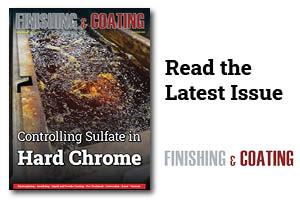The best way to have a low Experience Modification Rating (MOD) score is to avoid workers’ compensation claims altogether.
 Steve CareyBut when they inevitably happen, you don’t have to wait three years for the incident to drop off the radar. There are ways to manage risk now.
Steve CareyBut when they inevitably happen, you don’t have to wait three years for the incident to drop off the radar. There are ways to manage risk now.
Start by understanding your data, claims history, and the overall impact of the claim. Your broker can help you analyze the data by asking these questions.
- What time of day or day of the week do most accidents occur?
- Is there a certain manager on duty when most accidents happen?
- What types of incidents are occurring that lead to workers’ compensation claims?
- Are there certain body parts commonly involved in your claims?
- Are there repeat offenders on your team?
Understanding Common Practices
For example, a fairly common practice is that workers will get injured on the weekend but fake an injury on Monday at work to be eligible for workers’ compensation.
It can seem futile to prove an employee wasn’t injured at work, but all is not lost. You can manage your risk by assigning a nurse case manager to questionable cases. The nurse will accompany the employee to the doctor’s office to work with the doctor on a treatment plan as needed.
Consider whether insurance adjusters are over-reserving claims to protect their forecasts. If so, you can fight back.
Safely get employees back to work immediately following a claim to potentially see a 70% discount on your MOD, rather than allowing the injured employee to claim indemnity and medical.
Further, work with your broker to determine each claim's economic impact and how it will affect your MOD score over three years.
Knowing Your Numbers is Critical
The MOD score: for employers, it can cause a smile of relief or a look of anguish for those needing to figure out how to get a better score.
So, what is a MOD score? It is a type of grading system for all employers in every state. The number of workers’ compensation determines the grade given claims an employer had over a certain period.
The lower the score, the safer the employer is considered to be. Scores are assigned by each state’s worker’s compensation rating bureau, and insurers use them to determine workers’ compensation insurance premiums.
Some companies will not hire a vendor if they have a high or unfavorable MOD score. However, there are ways to improve your score.
Spotting a Fake
Lowering your MOD score is done by controlling losses, partly through safety and prevention measures.
Prevention begins by first understanding the hot spots for workers’ compensation claims. We dive deep into a company’s workers’ compensation data and break down trends in claims by supervisor, body part, three-year cost of claims, day and time, to name a few.
The trends can be interesting and telling. For example, workers tend to have a lot of so-called accidents on Mondays and Fridays.
That’s not just a case of the Mondays; it is more likely that they were injured over the weekend outside of work but want to try to claim workers’ compensation by saying the accident happened at work. The goal is to get paid for taking time off to heal.
For accidents on Mondays, do a little more research to determine if the accident did happen at work.
For claims made due to an accident on a Friday, determine if the worker was trying to rush to the weekend, which caused them to be unintentionally careless, leading to an accident.
We also examine the Workers' Compensation Bureau worksheet to determine whether high reserves or mistakes are affecting an employer’s score.
Getting the Grade
Try these five steps to lower the frequency and severity of workers’ compensation claims.
- Conduct regular safety training on equipment used and how to avoid bodily injury. It might be as simple as bending at the knees or wearing goggles.
- Provide the appropriate safety equipment needed for the job and the environment.
- Welcome feedback and reporting. Create an atmosphere where employees are encouraged to share information about unsafe conditions and ideas on improving them.
- Conduct routine inspections of all workstations.
- Ensure a healthy work environment. Ensure people get the proper breaks so the work doesn’t strain their bodies.
Steve Carey, CAWC, is a Regional Sales Manager, Property and Casualty representative with Oswald Companies. Visit https://www.oswaldcompanies.com.



































